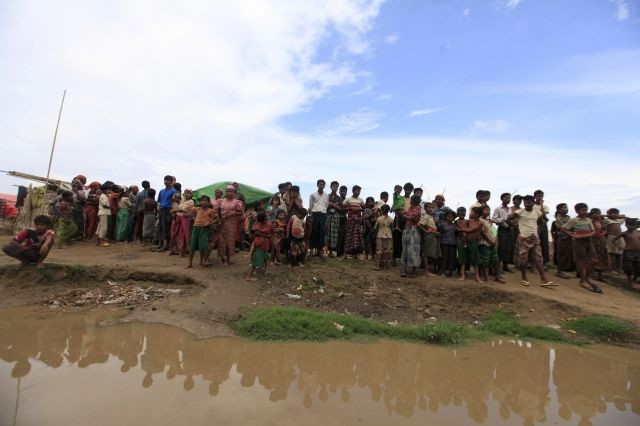Myanmar Sentences More Than 20 Buddhists To Prison For March Riots, Delivering On Government Promises To Impart Justice

Myanmar sentenced more than 20 Buddhists to 15 years in prison, for murder and other crimes during sectarian strife between Buddhists and Muslims in March, months after President Thein Sein promised, in a speech in Washington, to bring perpetrators of the riots to justice.
Many of those sentenced so far in the Buddhist-majority country for communal violence, which broke out in June 2012, have been Muslims, even though most of the people killed and displaced during months of religious strife are members of the minority Rohingya Muslim community.
The sentences, handed down on Wednesday and Thursday, relates to the killing of 43 people on March 20 and March 21 in the central Myanmar town of Meikhtila, Associated Press reported, although the verdicts failed to erase a sense of unequal treatment of Muslims, as they came a day after a Muslim received a life sentence for murdering one of the 43 casualties.
The violence -- mostly perpetrated by Buddhist mobs -- killed 200 people and rendered 150,000 people homeless, including 12,000 displaced by the Meikhtila riots, damaging the government’s image abroad, at a time when the nascent democracy is trying to resurrect its economy by winning the goodwill of foreign governments and investors.
The sentences closely followed criticism from U.N. Secretary-General Ban Ki-moon, on Wednesday, for the country’s inept handling of continuing religious tensions, saying the government’s promises to deliver justice had to be “translated into concrete action.”
“If it is not addressed urgently and firmly, underlying tensions could provoke more upheaval, undermining the reform process and triggering negative regional repercussions,” Ban said, in a speech to diplomats in New York, AP reported.
Some Burmese suspect that some members of the country’s former military regime are inciting violence, to create an atmosphere of uncertainty and to reassert their influence, according to a Bloomberg report.
Monks associated with the 969 movement -- a radical Buddhist movement, whose anti-Muslim rhetoric has been blamed for stimulating violence -- have won support from some leaders in Myanmar’s government. And, the country’s most prominent opposition leader and Nobel-winning democracy icon, Aung San Suu Kyi, maintains that Myanmar is being flooded with money from the Persian Gulf to propagate Islam and to train Islamic terrorists.
Myanmar’s newfound media freedom has also helped the 969 movement's message to spread, with newspapers printing anti-Muslim conspiracy theories, which were earlier limited to the Internet.
Suu Kyi has not challenged the 969 movement, saying rebuking them would only embolden the Buddhist extremists.
© Copyright IBTimes 2025. All rights reserved.






















